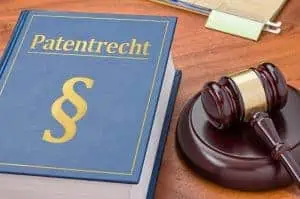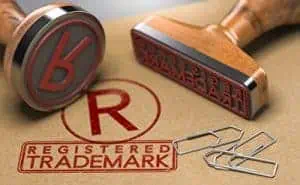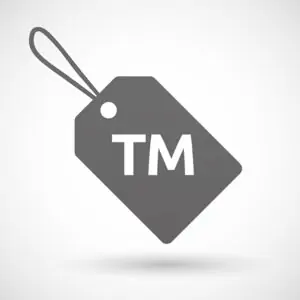Trademark licence agreement: advantages - content - correct wording
You are already the owner of a trademark and now want to exploit it profitably? In order to protect yourself legally, a trademark license agreement with potential users is essential.
Attorney for industrial property rights Marko Bennek explains in this article what you need to consider and how to proceed correctly.

Contents
- How does trademark protection arise?
- What is a trade mark licence and what types of licence are there?
- What are the advantages of a trade mark licence agreement?
- In which cases can a trade mark licence agreement be concluded?
- What must be the content of a trade mark licence agreement?
- What rights do licensees and licensors have?
- Conclusion - What must be considered in a trademark licence agreement?
1. How does trademark protection arise?
A trademark is a protected symbol that allows you to distinguish your goods and services in a way that consumers associate them with your company. The prerequisite for trademark protection is the so-called "distinctiveness" of the symbol (§ 3 Trademark Act).
It must be capable of being attributed to your company's goods and services and distinguished from those of another company.
For example, this is not the case with a purely descriptive character. Protectable are not only words, names, letters, and numbers but also three-dimensional designs, sounds, slogans, colors, or images. Trademark protection can arise in various ways:
- Registered trademark § 4 No. 1 Trademark Act - through registration and entry of the symbol with the relevant authority. For protection at the national level, the German Patent and Trademark Office (DPMA) in Munich is responsible, and at the European level, the European Union Intellectual Property Office (EUIPO) in Alicante.
- Unregistered trademark § 4 No. 2 Trademark Act - also valid without registration if the symbol is used in business transactions for certain goods and services and thereby achieves a sufficient degree of recognition. This is referred to as "recognition in trade," where a significant part of the relevant public (more than 20%) knows the trademark and sees it as an indication of a particular company.
- Notoriously well-known trademark § 4 No. 3 Trademark Act - if there is neither registration nor use in the country, trademark protection can arise if the symbol is notoriously well-known (Art. 6bis of the Paris Convention). This means that although the symbol was only used abroad, it is nevertheless known as a trademark to a substantial part of the relevant public in the country (60-70%).
2. What is a trademark license and what types of licenses are there?
As the trademark owner, you have a "monopoly right" to the symbol. Only you are authorized to use it and can simultaneously decide who else is allowed to use the trademark alongside you. To do this, you can grant a right of use to third parties (§ 30 (1) Trademark Act). This is referred to as a license, the scope of which is recorded in a trademark license agreement between you and the licensee.
You are free to determine how the license should be designed. It can include material (specific goods or types of use), spatial (distribution limited to specific locations), and temporal restrictions to which the licensee is bound.
If the licensee exceeds the agreed-upon restrictions listed in § 30 (2) Trademark Act (e.g., duration of the license, chosen classes of goods, quality), you, as the trademark owner, can take action against this and demand damages (e.g., in the amount of the profit obtained by the licensee) or request cessation.
Example: Your licensee sells your trademark perfume in a discount store, although this is expressly prohibited, due to economic hardship.
There are different types of licenses
An exclusive license entitles only the licensee to use the trademark, which means that as the licensor, you are not allowed to use the trademark or grant further licenses. Unless otherwise agreed, the licensee may also decide whether to grant sub-licenses or transfer their license. The "exclusivity" can also apply to specific forms of use (e.g., an exclusive license for a specific class of goods).
If you grant a non-exclusive license, the consequences are less drastic for you. In addition to the licensee, you are still entitled to use the trademark and grant licenses.
Attention: The trademark license agreement should be distinguished from the transfer of the trademark. By granting usage rights, you, as the licensor, remain the trademark owner. Only in the case of a trademark transfer do you completely lose your rights to the buyer. However, it should be noted that licenses already granted generally continue to exist despite a trademark transfer.
3. What are the advantages of a trademark license agreement?
A trademark creates a certain origin, quality, and a unique image in the minds of consumers. This positive association increases the economic value of your brand and strengthens your position in the market. You can take advantage of this by licensing your brand and granting targeted licenses for its distribution.
The value of a company is determined, among other things, by its brand value. The hypothetical license fee serves as a benchmark. This means that the higher the license fee for trademark rights that you could demand, the higher the value of your company. Brands are therefore considered economic assets.
Trademark license agreements can also help you explore new markets and offer products on a regional or international scale. The same applies to repositioning your brand in the market by using it as a communication tool.
To maintain your good reputation and prevent harm, it is advisable to define the precise scope of the usage rights in trademark license agreements.
4. In which cases can a trademark license agreement be concluded?
Trademark license agreements can be concluded in various areas:
- Manufacturing of original goods protected by the trademark.
- Sale of goods on behalf of the trademark owner, such as clothing for a fashion label.
- Licenses can also be granted to service companies, allowing them to benefit from existing know-how, logo, and image, for example, franchise companies.
- In the context of collaborations, such as marketing campaigns.
Please note: Trademark licenses are not registered at the national level. Therefore, a trademark license agreement primarily serves as evidence.
5. What must be the content of a trade mark licence agreement?
To ensure legal protection, your trademark license agreement should include the following key points:
Parties
The contract should state the names and addresses of the parties involved, including the licensor and licensee, as well as the authorized representatives.
Subject matter of the license - the trademark
The trademark should be described in detail. This includes information such as the registration with the relevant trademark office, the trademark registration number, the type of trademark (e.g., word mark), and the classes of goods and services for which the trademark provides protection.
Scope of the license
The core of the trademark license agreement is the scope of the license. You should carefully consider which type of license (exclusive or non-exclusive right of use) you choose from the options mentioned above.
It depends primarily on whether you still want to use the trademark yourself and grant sub-licenses. If you allow the licensee to grant licenses to third parties, this should also be specified in the agreement. Additionally, the trademark license agreement should clearly outline how the licensee is permitted to use your trademark. Specify all spatial, material, and temporal restrictions, including:
- The geographic area of the agreement (e.g., Europe, worldwide, or Germany)
- The specific products or services (e.g., merchandise goods)
- The manner of use (e.g., placement on packaging)
- The duration for which the trademark can be used. Regarding the duration, it may be possible to include early termination options (e.g., ordinary termination rights).
Many aspects depend on economic requirements. Trust our expertise and seek advice on which type of license is best for you!
License fee
The license fee and its amount can be freely agreed upon and depend not only on the brand's level of recognition but also on the general competitive situation. The following types of fees are possible and can be combined:
- Flat license fee
- Turnover-based license fee
- Per-unit license fee
- Minimum license fee
Use requirement
To prevent trademarks from being registered and protected solely to prevent competitors from using them, there is a so-called use requirement for registered trademarks. Trademark rights can only be enforced if the trademark has been used in its registered form within five years. This also applies to licenses, as the use requirement does not automatically apply to licensees. By explicitly addressing the use requirement in the agreement, you prevent any risk to your brand caused by non-use.
Quality control
To prevent damage to the brand's reputation, you should agree that as the licensor, you have the right to conduct inspections and quality control measures.
Defense of the trademark
If your trademark is infringed by third parties, as the trademark owner, you have the right to defend it. If you want to grant the licensee the right to enforce these rights, an agreement must be in place. Otherwise, the licensee will need your consent.
Miscellaneous
Other points that can be addressed in the agreement include confidentiality clauses, the maintenance of the trademark by the licensor, liability, etc.
Don't leave any legal gaps! We are happy to prepare a trademark license agreement that meets your needs and negotiate with potential licensees.
6. What rights do licensees and licensors have?
In summary, various rights can be attributed to both the licensee and the licensor:
The Licensee
- Has the right to use the trademark within the scope of the license agreement.
- However, the licensee cannot file a lawsuit against third parties for trademark infringement without the consent of the trademark owner, unless otherwise specified in the contract. If the licensor files a lawsuit, the licensee may join that lawsuit. This means that even with an exclusive license, the licensee generally does not have an independent right to claim damages against potential trademark infringers.
- Has the right to expect the licensor to maintain the trademark (e.g., payment of fees, renewal of the trademark's protection period).
The Licensor
- Has the right to receive payment of the agreed-upon license fee from the licensee.
- Can take legal and contractual action against the licensee if they exceed the agreed-upon limits.
- Can require the licensee to exercise the license.
7. Conclusion - What must be considered in a trademark licence agreement?
- The trademark owner, as the licensor, grants the licensee the right to use the trademark through a license agreement.
- The license can be defined through a trademark license agreement and can be limited in terms of geographic area, duration, and scope of use.
- A distinction must be made between an exclusive and a non-exclusive right of use.
- The trademark license agreement should include details about the licensed trademark, the specific scope of use, the license fee, and the rights of the licensee.
Do you want to draw up a trademark licence agreement?
Then call us now on (040) 3501 6360 or send an email to info@kanzlei-bennek.de.
Picture credits: © Aymanejed | Pixabay
Weitere Artikel zum Thema:









